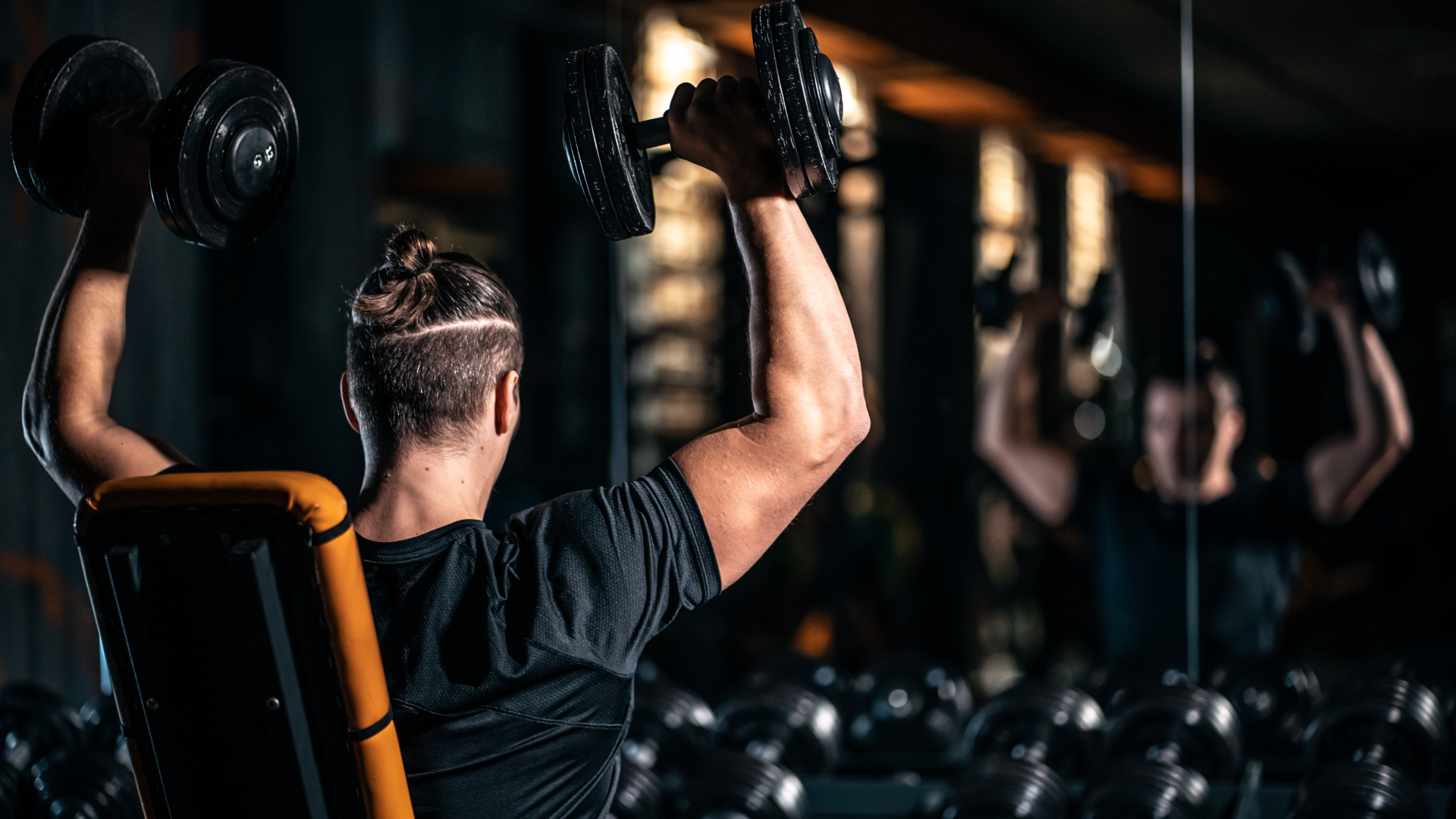If you’re serious about boosting your testosterone levels, then you’ve probably already heard the phrase ‘DHEA’ on the grapevine. But what is DHEA and what are its benefits? What are the side effects of DHEA for a man? How about for a woman?
More importantly, is this just another steroid hormone that men can use, or can women for once experience the same perks? In this post, our mission is to uncover the truth behind the DHEA supplement, and see what all the fuss is about.
What is DHEA?
DHEA, DHEA sulfate or dyhroepiandrosterone (if you want to get technical) is a steroid hormone that is naturally produced by your adrenal glands, gonads and brain. It acts as a precursor to estrogen and testosterone, as it is converted by your body into these important two key hormones.
Now, when you hit your 30s, these DHEA levels tend to drop. And as you can guess – your testosterone and estrogen levels will drop with it.
But here is the kicker. Alongside your testosterone… your sexual drive, energy, metabolism, stamina… hell even elements of your health will all start to diminish too!
Knowing this, it is little wonder why so many people choose to take DHEA supplements as a form of treatment or alternative remedy. On the surface, it has all the appearances of being the perfect solution to your health and testosterone problems.
Why do people take DHEA? What is DHEA good for?

Low DHEA levels is something you can be tested for, so for a lot of people they choose to take DHEA simply because they want to boost their natural testosterone and estrogen production.
However, for others they use it to combat the health issues that can arise from low DHEA. For instance, low DHEA has been linked to aging, anorexia, breast cancer, heart and kidney disease, type 2 diabetes and even HIV.
Now, we’re a bit dubious of the HIV claim – coz yeah, a lot of the DHEA claims can’t be substantiated – however, given that low testosterone levels can affect your immunity, there may be something to this one. We can’t be sure.
But that is not all…
Alongside being used to reverse the signs of aging (by improving skin tone); DHEA supplements are also commonly used as an alternative remedy for many of the health issues that can arise from low testosterone and estrogen. The most common include: immunity, menopause, erectile dysfunction, depression, obesity, lupus, osteoporosis, hormone imbalances, brain function and muscle strength.
Before you get excited and jump on the bandwagon, we advise you to be cautious…
A lot of the “studies” surrounding DHEA supplements are pretty hit and miss – hell many even contradict themselves with the claims they make – so remember to take them with a pinch of salt, and don’t put all your hopes on them until you have the full facts.
What are different forms of DHEA?
Whilst our bodies naturally produce DHEA; what you find in DHEA supplements is a synthetic version of the hormone which is produced from disogenin. This is a substance found in your everyday soy and wild yams.
Now before you start stuffing your face with soy and wild yams, it is important to know that our bodies cannot convert yam compounds into DHEA on its own. We need a little help, which is where the supplements come in.
There is also DHEA sulfate or DHEA-S to consider – although there are no studies or data to support its use within supplements, so be wary if you see it in the ingredients list.
DHEA-sulfate is a sulfate derivative of DHEA which your body can use by turning it into androgen hormones. It is believed it can do the same job of boosting testosterone levels, but yet again there is no proof to this theory.
What is DHEA used for?

DHEA is most commonly used as a treatment/preventative measure to deal with the numerous health issues that can arise from low testosterone and estrogen levels.
The biggest names you’ll find on the list include: Alzheimer’s disease, chronic fatigue syndrome, depression, erectile dysfunction, fibromyalgia, lupus, menopausal symptoms, metabolic syndrome, multiple sclerosis and Parkinson’s disease.
Yet the benefits of DHEA are not just restricted to illnesses. It is also believed to improve sports performance, your libido and weight loss, as well as boost your immune system. More notably, its testosterone boosting capabilities have been linked to increased muscle mass and fat reduction.
And for us guys, this is probably one of the biggest draws (aside from erectile dysfunction).
Testosterone influences so many elements of our body – our ability to build muscle, fight fat and keep it up in the sack – that anything that can help is instantly going to appeal.
What about the science?
Here is where things get incredibly tricky. The problem is – of the few DHEA studies that exist – the majority of them seem to contradict themselves.
For example, a study on DHEA and osteoporosis in 2015, showed that men with higher levels of DHEA in their bloodstream had higher bone mineral density than those with low DHEA. However, a 2008 study on DHEA supplements showed that whilst they helped women to achieve better bone mineral density, these supplements failed to enhance the bone health in men. In other words, only our bodies natural DHEA can help with bone density. Not the synthetic stuff in supplements (well in men’s bodies anyway).
But see what we mean? The DHEA benefits for men and women seem to contradict themselves.
What are DHEA health benefits?

Besides the obvious boost DHEA can give to your testosterone and estrogen levels, the biggest health benefits DHEA is good for, consist of:
-
Increased hormone levels – this is especially helpful to women during the menopause.
-
Alleviated sexual/erectile dysfunction.
-
Improved brain function – by stimulating neurons and inhibiting cortisol, this can improve your memory, visual awareness and reduce symptoms of Alzheimer’s. It is also good for enhancing the emotional regulation of your memory by healing the connection between the amygdala and hippocampus.
-
Protection against depression – due to DHEA having anti-cortisol activity.
-
Increased pregnancy and fertility.
-
Reductions in heart disease and hypertension (which can help keep your heart in tip top condition) – by reducing high blood pressure and lowering your cholesterol.
-
Protection against inflammation – DHEA can stop inflammation, balance your immune responses (from bowel disease) and prevent neuron degeneration. It can also reduce inflammation in the lungs and hyperreactivity in your airways, which is useful if you’ve got asthma.
-
Prevention of osteoporosis (although this seems to apply more to women than us guys).
-
Increased REM sleep (and who can say no to more sleep?).
-
Obesity and weight loss – this perk only seems to benefit obese guys (sorry ladies) as it can help reduce blood insulin levels, lower cholesterol and boost energy levels. Now for women it appears to have the opposite effect and can help those dealing with anorexia. In a study, it helped them to gain weight and benefit from better moods.
-
Lower insulin resistance – combined with exercise, DHEA can help lower insulin resistance and increase weight loss.
-
Bone health – DHEA offers the combo of increasing bone formation whilst inhibiting bone cell death. This can help to raise your bone volume and mineral density.
-
Prevention of muscle dystrophy – this is achieved by protecting you against cell oxidation and cell death. It also increases the effects of antioxidants, helping to stop muscle atrophy.
- Helps Lupus – DHEA can provide a short-term benefit as it can help lessen the symptoms and lower cholesterol.
What are DHEA side effects and dangers?

Arguably one of the funniest things about DHEA is that whilst very few of their studies seem to agree on the long-term DHEA benefits for men and women; its side effects are pretty well known.
Yes it can increase testosterone, but it can also cause these DHEA side effects:
- Acne and oily skin
- Headaches
- Fatigue
- Hair loss
- Congestion
- Abnormal periods
- Mood swings
- Insomnia
- High blood pressure
- Reduced good cholesterol
- Women may begin to take on masculine characteristics – yep, you guessed it: facial hair and deeper voices.
- Men might develop breast tissue – to put in more bluntly, you might get moobs.
- Increase the risk of some cancers that are influenced by hormones e.g. breast, ovaries and prostate (to name a few).
- Abdominal pain
- Breast tenderness
- Heart palpitations and irregular/rapid heart beats
- Testicle shrinkage (you read it correctly – smaller balls)
- Increased aggression and urinary urgency
- Itchiness
- Weight gain (primarily around your gut)
- Psychotic disorders – high levels of DHEA can harm those at risk or already suffering from psychological disorders.
- Inhibit your body’s natural ability to make DHEA (ummm… a bit counterproductive, wouldn’t you agree?)
- Interferes with the effectiveness of various medications: antipsychotic drugs, HIV medication, estrogen and oral contraceptives, insulin, testosterone and cancer medications.
- Increases addiction – by responding to emotional and behavioral circumstances, it can trigger substance abuse.
Ironically, there is also concern that DHEA supplements can harm those with depression, bipolar disorders, diabetes, heart disease and liver disease. That’s right! Many of the conditions it claims to help can also be hindered by the very same supplement if they are taken in high dosages.
In fact, DHEA dosage is the biggest trigger for these problems. Not only should it be taken under the supervision of healthcare provider – who can monitor your hormone levels – high dosages should not be taken over an extended period of time, as it could cause thyroid problems, high cholesterol and much more.
Much of these DHEA side effects stem from the fact that these supplements haven’t been tested for safety and are largely unregulated. Meaning – there is no one controlling their quality, ingredients and dosage levels.
What is the standard DHEA dosage?
You would think that given the amount of concerns there are surrounding the impact high DHEA dosages can have on your health, there would be more restrictions on dosages. There isn’t. In fact, there is no standard dosage for DHEA, meaning you could arguably take as much or as little as you want.
Because of this, we strongly recommend speaking to your doctor first before you touch this supplement, as you don’t want to risk taking too much.
DHEA for men – possible uses and benefits?
Easily the biggest reason men use DHEA is because of its ability to boost declining testosterone levels as we age, and the many negative effects that arise from this fall.
And there is some merit to the idea. Increase your natural testosterone levels and you can enjoy the following DHEA benefits: stronger immunity; improved mood and memory; decreased fat mass and weight loss; bolstered libido, stamina and performance (both in the sack and on the field – there’ll be nothing ‘limp’ about you); increased sperm production, and best of all improved erectile dysfunction, muscle mass and bone density (depending on the study you read).
DHEA for women – possible uses and benefits?

A lot of the DHEA for women benefits are the same as the guys. From slowing down aging to bolstering immunity, to improving memory to weight loss; there are many similarities between each group so we won’t go into detail as you’ve already read it before.
The key ones to remember are: improved sexual drive, mental health (depression, anxiety, OCD etc.), bone density and relief from menopausal symptoms (when taken in small doses).
Now at this point, we want to remind you about the benefits we discussed earlier in the post. Whilst some studies do claim that DHEA can help men and women to lose weight, others point to opposite. In fact, in one study DHEA helped men to lose weight, whilst for women with anorexia, it helped them to gain weight. Confusing, no?
Similarly, you might remember us talking about how DHEA for women can help with fertility and pregnancy. If this is something that is genuinely worrying you, then here’s the science:
Ovarian reserve links to your ovaries capacity to produce a healthy egg to be fertilized. Now if you’re struggling to get pregnant and haven’t responded well the IVF, the belief is DHEA can help to increase your chances of getting pregnant and having a higher ovarian reserve.
Sounds amazing, right? This is just another one of those theories that hasn’t been proven. So whilst in principal raising your estrogen and testosterone levels CAN help fertility; this theory has no backing, so please be cautious.
Conclusion?
DHEA is one of those products which on the surface has the potential to be amazing, but when you delve deeper can be confusing and downright contradictory.
From studies inability to agree on their benefits, to the fact that it is not FDA approved (so suppliers don’t have to verify the quality of their ingredients); DHEA is something you should first approach with caution and next with the approval of a doctor.
Don’t get us wrong. There are many perks to DHEA, namely its ability to boost your natural testosterone and estrogen levels. Let them fall and you will see an impact to your mental and physical health!
But what about the dangers? What about the potential DHEA side effects?
Whilst a bit of oily skin and acne might be alright for some. If you’re one of the unlucky ones to develop the rest, then the cons easily outweigh the pros.
Personally, we would give it a miss. But if you’re seriously considering it, then our advice is: think before you do; consider the advantages and disadvantages of DHEA, and most importantly do your research. If, after all that you still want to try DHEA, remember to consult a professional and keep your dosage to a minimum.
Over 299,434 purchases
Over 509,389 bottles sold
Over 30,563,340 pills taken








